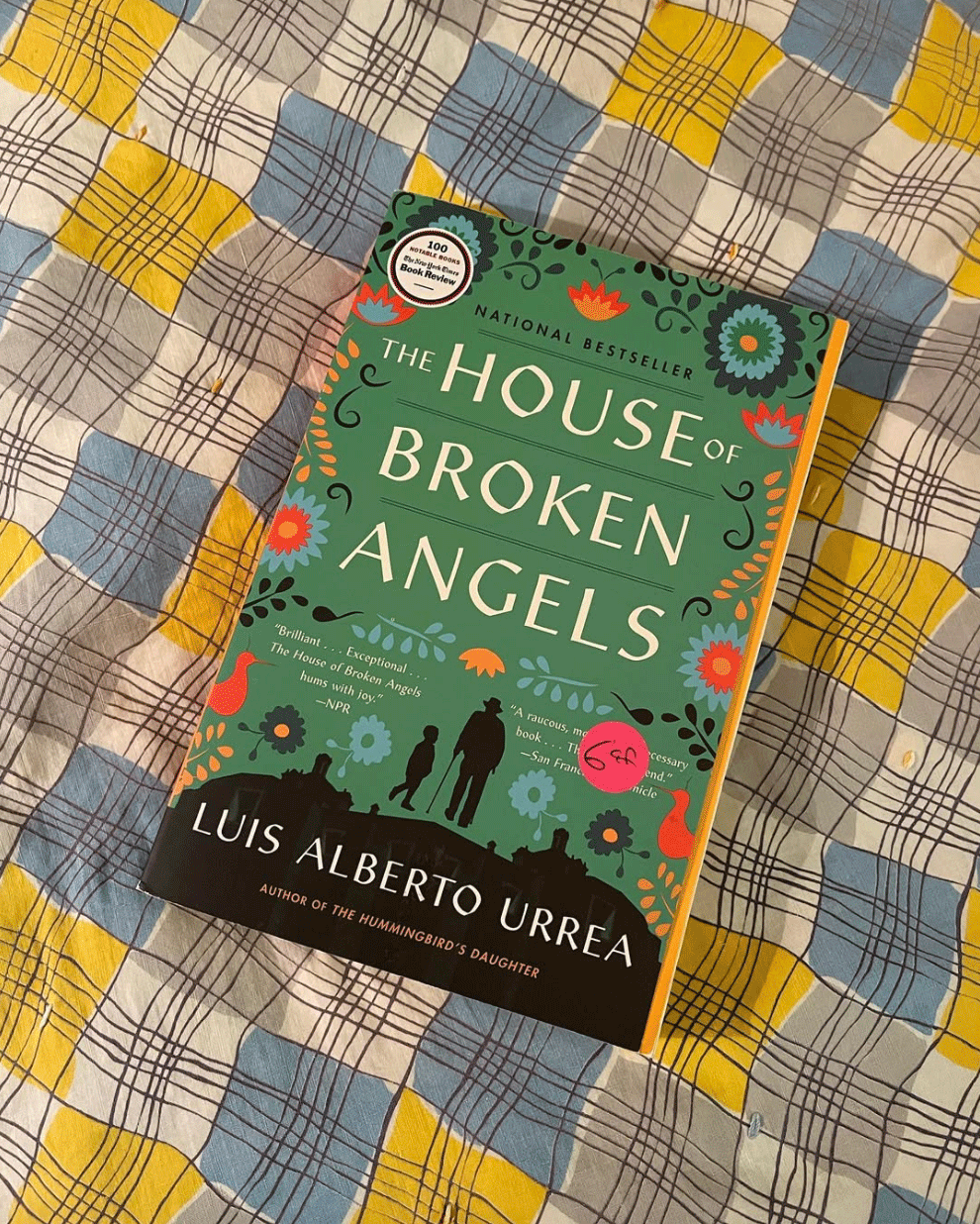The House of Broken Angels
The House of Broken Angels by Luis Alberto Urrea is a VIBE. Which is not something that I ever thought I would write about a book. On the one hand, I think this somewhat subtle cover is a bit deceiving because this novel is full of quick and snappy dialogue, vivid characters, and, well, drama. Miguel Angel de La Cruz (aka Big Angel) is dying of cancer. His mother — the matriarch of this sprawling Mexican-American family in San Diego — has recently died at almost 100. The book opens with lots of tumult as Big Angel (and therefore the rest of his family) oversleeps and is late for the funeral. Aaaand we’re off and running. This “chaos” is really this book’s strength. Sometimes it’s a lot to follow; characters go by a couple of different nicknames (Big Angel’s younger half-brother is Little Angel and that is one readers must remember!), sometimes the lineage is hard to keep straight, and Urrea whips readers back and forth from Big Angel’s childhood in Mexico, his history with his wife Perla (who he met in Mexico and then brought to San Diego years later), to the present, where he ruminates on life, death, and forgiveness as he’s feted on the occasion of this 70th birthday the day burying his mother. Here’s the way Urrea describes this party: “It was as if a dump truck had spilled a ton of humanity into the yard.” (Love it.)
But back to that cover. About 2/3 of the way through The House of Broken Angels, the glorious cacophony crescendos and clangs — and then starts getting quieter, gentler, and more tender. Which is what I feel this beautiful cover conveys…and it’s perfect.
There’s a lot of “philosophizing” here, but you have to read between the lines. That said, Urrea gives this thought to Little Angel, who is a bit of an “outsider”: “He believed he was celebrating them when he shared stories of their foibles. He felt the burden of being their living witness. Somehow the silliest details of their days were, to him, sacred. And he believed that if only the dominant culture could see these small moments, they would see their own human lives reflected in the other.” Perhaps that’s Urrea telling the readers plainly why he wrote The House of Broken Angels.
originally published on instagram

